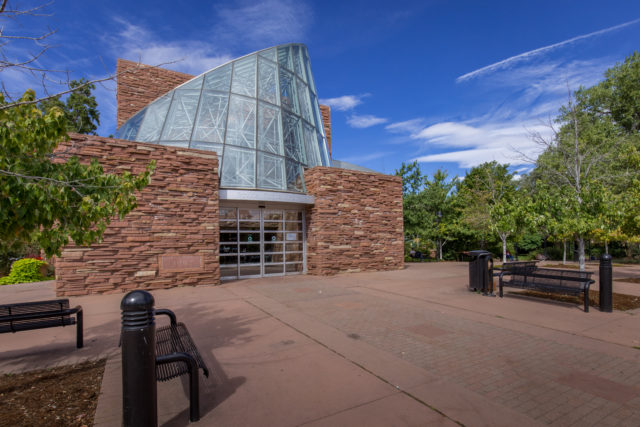
These are uncertain times. As America faces increasing waves of anti-democratic fervor, Colorado has stood as a bulwark.
I’m proud of the work we’ve done in the Legislature to protect and strengthen democracy, and co-sponsored many of the bills to do so, including: Restoring Voting Rights for Parolees in 2019 and, this year, passing the Colorado Election Security Act and the Election Official Protection Act.
But attempts to undermine our democracy are ongoing, which is why I’m a strong supporter of efforts to create and provide stable funding for an independent Boulder Public Library District. As the Washington Post pointed out earlier this year, our public and school libraries have not been immune to the censorship efforts intended to stifle speech and the free exchange of ideas.
The goal behind recent moves to politicize libraries and limit free access to materials that cover topics like race, gender, and sexual identity is simple: Dismantle public institutions, and thereby weaken democracy.
In just this past year, many state and local lawmakers have declared an all-out war on local and school libraries. Here are a few examples:
- In Idaho, a bill was introduced that sought jail time for librarians who lend out “harmful to minors” books. Backers of the bill said they objected to books that featured LGBTQ+ characters and storyline.
- In Kentucky, lawmakers passed a law for local politicians to “appoint whomever they want to library boards and block major library spending.”
- In Texas, local activists sought to remove “pornographic filth” from library shelves, which included the book “Between the World and Me” by Ta-Nehisi Coates, which is written as a letter to his son about the experience of growing up Black in America.
- In Florida, books by Toni Morrison, Khaled Hosseini, and Arundhati Roy were successfully removed from the school library, along with books by transgender authors.
This war over access and control isn’t just happening in red states. The Colorado Springs Gazette wrote an editorial in March titled “Don’t let CRT and DEI dominate our libraries.” It encouraged parents to “check the children’s book section in your neighborhood libraries.”
I encourage people to check out the library as a place where diverse ideas and people come together. The Boulder Public Library remains a central hub for civic participation and inclusivity. It’s been a polling station, a COVID-testing and mask-distribution center, a citizenship-class location, a public space for folks to talk about race and culture, and more. Perhaps most important of all is the quiet work the library does on a daily basis: the simple and heroic act of providing free access for anyone from any economic background to information: books, literature, classes, job-search and business information, and tools. This access is an essential democratic activity.
As Boulder Public Library director David Farnan has said: “Public libraries are one of the last great unbroken promises of a democratic society.” Their central purpose is rooted in the First Amendment. Libraries stand at the front lines of this fight. And underfunded public institutions signal a grave threat to free societies.
Boulder’s libraries have been underfunded for decades and now, more than ever, we need to strengthen and fortify this community asset. This is one of the many reasons I support efforts to ask Boulder-area voters this fall to create and fund a library district. The existing model relies on unstable and regressive sales tax, which constantly short-changes the library, particularly when times are tough. That, in turn, limits access to information and programs for those who can least afford it.
Library district funding would come from a dedicated property-tax that would cost the owner of a home with a taxable value of $500,000 less than $10 per month. That is not insignificant, but it’s reasonable and, most importantly, it is what our library system needs.
Having a dedicated, stable source of funding will allow the library system to continue to do what it does best, without struggling to keep the lights on and the doors open. It would allow the library to restart its STEM storytime outreach within the three mobile home parks in the city. It would restore literacy programs that have helped thousands of adults and children reach their reading, writing, and spoken English goals—programs that were effectively shut down due to pandemic-related budget cuts. It would enable the library to partner with local schools to address literacy and pandemic-related learning loss. It will result in the Carnegie Library for Local History to re-open with regular hours and for the Canyon Theater to open its doors again to cultural and civic programs.It will help fully fund construction and programs at the new North Boulder Branch and deliver a long-promised branch in Gunbarrel.
Strong libraries create resilient communities—particularly in times of uncertainty. Putting the Boulder Public Library on a solid funding path through the creation of a library district will not only help our library system grow and thrive, but is another significant step we can take to protect democracy.
This opinion does not necessarily reflect the views of Boulder Weekly.
Email: [email protected]














